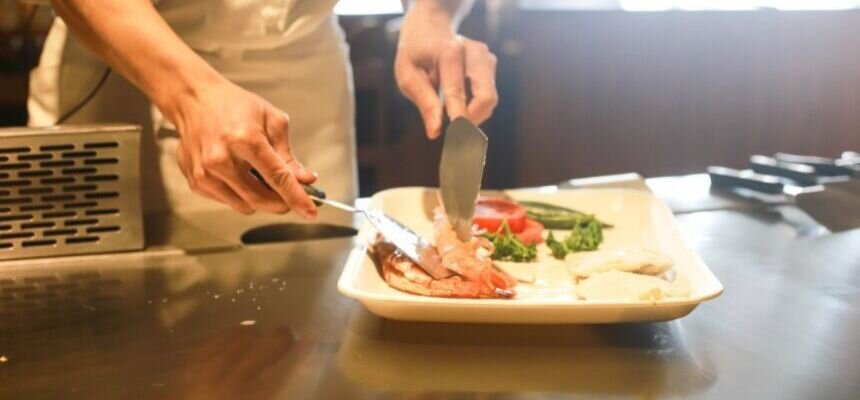It’s one of those perfect shifts that makes a restaurant manager proud. Tables are full. Dining room guests are enjoying their meals. Orders are taken and delivered without a hitch. This is the way a smooth service runs when you know how to run a restaurant kitchen efficiently.
12 Restaurant Kitchen Efficiency Tips That Make Every Shift Easier
As a restaurant manager, you have dozens of responsibilities. When the dining room gets busy, you balance it all from front to back of house. Keep things under control with kitchen management tips that make every shift easier.
1. Mind Your Menus
Effective menu development is a key component of efficient kitchen management. Design your menus around readily available produce and ingredients. Factor in seasonal items and customer favorites. Focus on dishes that kitchen staff can prep with time- and cost-saving efficiency.
2. Stay On Top Of Inventory
Invest in the latest digital technologies for managing restaurant inventories. App-based systems make it easier to track and adjust inventory and ordering. Stay on top of stock rotation in and out of freezers, walk-ins and pantries.
3. Aim For High Yields
Some of the best kitchen tips are the ones that hold down your bottom line. Efficiently manage food cost by managing produce waste. Work with high-yield ingredients like premium romaine hearts and fresh Brussels sprouts. Always buy quality produce from trusted suppliers.
4. Establish Effective Prep Procedures
Efficient prep procedures keep back of house on course through the busiest service. Post checklists for staff to reference during a shift. Every step should become a routine that’s simple to follow even when the dining room is packed.
5. Implement Work Station Checks
It’s easier to run an efficient kitchen line when every work station is ready to go. Station checks should always be part of service setup and breakdown.
• Stock individual stations with tools specific to the job.
• Keep a healthy backup of clean utensils within easy reach.
• Make sure knives stay sharp and cutting boards stay sanitized.
• Locate work station trash cans away from high-traffic aisles.
6. Maintain Essential Kitchen Equipment
Don’t let an equipment breakdown put the brakes on kitchen operations. Keep up with certified inspections for walk-ins, freezers, ovens and grills. Kitchen equipment maintenance saves money on repair costs and minimizes downtime.
7. Follow Strict Cleaning Routines
An efficient commercial kitchen starts and ends each shift with all areas cleaned from top to bottom. Strict cleaning routines take care of small jobs before they turn into time-consuming cleanup projects. Commercial kitchen cleaning procedures also minimize cross-contamination risks and satisfy health department inspectors.
8. Match Schedules To Service
It’s not cost-effective to bring in more employees than you need for a shift. It’s never a good idea to cover a service with a skeleton crew. Pay attention to ebb and flow patterns in the dining room. Use that information to schedule kitchen personnel and control labor costs.
9. Cross-Train Back Of House
Solid training gives back of house staff the skills they need to do their jobs efficiently. Increase their ability to handle a heavy service by cross-training everyone. This decreases the stress that comes with shorthanded shifts. Cross-training helps your crew stay productive and avoid kitchen chaos.
10. Bring In Front Of House
Employees who work front of house need to understand kitchen procedures. This strategy helps them handle everything from anticipating prep time to expediting the line. It’s easier for waitstaff to work front of house when they know how to efficiently work with back of house.
11. Listen To Your Kitchen Staff
They want things to run smoothly too. That’s why they’re one of your best resources for efficient kitchen management ideas. Make staff input a regular part of employee meetings. Let them know how much you value their feedback.
12. Work On Being Better
Knowing how to run a restaurant kitchen efficiently requires a special set of management skills. You’ve earned your position with dedication and hard work. Be your best by striving to be even better. When a shift goes well for you, it goes well for your employees too. A happy kitchen staff always work more efficiently.
You Can Count on Us
Not everyone can take the heat in the kitchen and still keep things running. You’re rightfully proud of how well you do your job. We’re happy to do our part by sharing management strategies that work in all types of commercial kitchens.
You can count on Hitchcock Farms to support your foodservice operations. We’re always here to supply you with innovative ideas and the very freshest premium produce.






